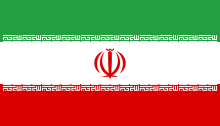News Release from windfair.net
Wind Industry Profile of
Pressure is Growing: Ambitious Goals for Climate Summit Demanded
Previously, it was mostly individual governments formulating ambitious climate protection targets, but then in the course of negotiations they fell victim to short-term economic interests. But this mechanism appears now to be reversing: The economy currently – just a few weeks before the climate summit in Paris will start – increases the pressure on governments to finally bring significant targets on the way. More and more companies are recognizing the need to use clean energy and leave fewer pollutants into the environment, in order to reduce their own carbon footprint.
Tech Industry
Particularly the energy-consuming tech industry celebrated itself in publicly announcing to purchase electricity for its data centers from renewable energy sources in the past few months. Some companies didn't only sign contracts with utilities, but even built wind and solar power plants on their own, some of the well-known members of this genus include Google, Amazon, HP and Intel.
And the eco fever continues to ramp up: Based in the USA, several relevant major initiatives have been established in recent months, in which companies come together to intervene actively in the design of climate protection.
 REN100
REN100
The initiative REN100 was formed a year ago at the Climate Week NYC 2014 as a network of companies publicly announcing to power their businesses only with electricity from renewable energy. More and more companies are supporting this network and publicly proclaim – as a precondition for participation – until when they want to have achieved this goal. They thus simultaneously ensure that the public can exert pressure – both in terms of compliance with the target in the respective companies, as well as the government to support the companies efforts with appropriate politics.
Initially started as a US network of companies such as Goldman Sachs, Nike and Johnson & Johnson, among the more than 30 participants are now also European companies such as IKEA, Commerzbank or H&M. The participation of the first companies from India (Infosys) and China (Elion) is considered a particular success.
 Ceres
Ceres
Further organizations such as Ceres provide more and more public pressure. In late July 365 companies announced their support for the climate protection plan presented by US President Barack Obama. Ceres includes both small businesses, which are mainly regionally active and known, and also global companies like Nestle, Staples, Mars and Unilever. The main aim is to ensure that politics sets ambitious targets for climate protection. In a first step, 29 US senators have been asked in an open letter to support the fight against climate change.
Emerging and developing countries in focus
The idea of protecting the world against climate change is no longer reserved for the industrialized nations. All around the world, emerging and developing countries are already experiencing strong effects of climate change, which is why these countries invest in renewable energy. While the emerging economies of Brazil and South Africa have been working to increase renewable energy for some time already, more and more countries now want to participate in it. So, currently there is a construction boom in the Middle East for wind energy.
 First wind farm in 25 years
First wind farm in 25 years
For the first time in almost 25 years, wind energy is now further increased in Israel. So far, there is only a single wind farm in the Golan Heights with a capacity of 6MW in the country. Now, two new farms are built at the same time: Each of the two farms, which will be build in the north of the country and completed next year, will consist of 25 turbines and generate 21MW of electricity. According to the Israeli news website YnetNews, the country is currently producing 13,000 MW of power per year, meaning the two wind farms would thus be only a drop in the bucket, but are still considered to be a 'game changer'. So far, bureaucratic hurdles and the uncertain political situation have always prevented the further expansion of wind energy.
 Jordan takes off
Jordan takes off
The neighboring country Jordan is currently also investing in wind power. In the past week, the first wind farm in the country was put into operation. The 38 turbines have a capacity of 117MW and will deliver 400GWh electricity annually, which corresponds to 3% of the current electricity production, as Zawya reported. The Tafileh wind farm has cost $287 million and was realized with the help of foreign investors. Even Jordan needs more and more energy every year, so the energy will have to come from renewable sources in the future.
 Hope for market liberalization
Hope for market liberalization
Even in Iran, there are opportunities for the wind industry. The country currently owns only some smaller wind projects. Sanctions of the western countries ensured no large farms could be set up. However, the ruling government that is slowly opening towards the West, brings hope that after an agreement with the US, soon the sanctions from abroad will be lifted. The wind industry is open for the possibility of a completely new market, because the ever-increasing power consumption in Iran could also be fed from large wind farms. So far, there are mainly smaller turbines in the country that have been erected with the help of Chinese investors.
- Author:
- Katrin Radtke
- Email:
- kr@windmesse.de
